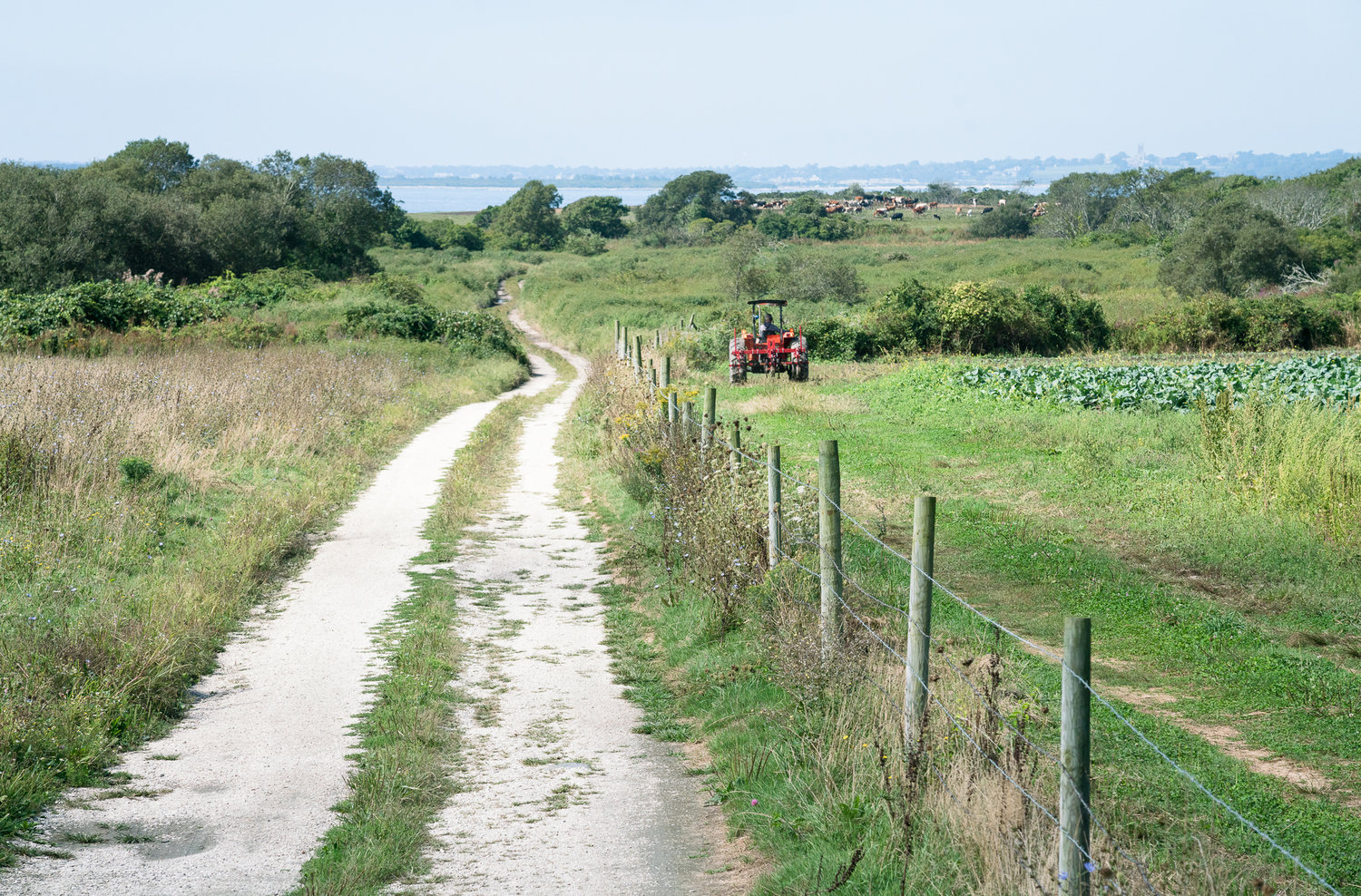Historic Little Compton farm to be purchased by conservancy
Transaction will one day see Little Compton's historic Wilbour-Nelson Farm acquired by agricultural conservancy
It will likely take years to come to fruition, but members of the Little Compton Historical Society and …
This item is available in full to subscribers.
Please log in to continue |
Register to post eventsIf you'd like to post an event to our calendar, you can create a free account by clicking here. Note that free accounts do not have access to our subscriber-only content. |
Day pass subscribers
Are you a day pass subscriber who needs to log in? Click here to continue.
Historic Little Compton farm to be purchased by conservancy
Transaction will one day see Little Compton's historic Wilbour-Nelson Farm acquired by agricultural conservancy
It will likely take years to come to fruition, but members of the Little Compton Historical Society and Agricultural Conservancy recently signed a deal that will see a bucolic 120-acre swath of farmland fronting West Main Road forever saved as agricultural land.
Historical society members earlier this month agreed to transfer their 75 percent remainder interest in the Wilbour-Nelson Farm at 601 West Main Road to the conservancy for $1 million. The organization has six months to raise the funds to complete the sale.
Society treasurer Bart Brownell said that outwardly, little will change at the farm, which has been actively farmed since Little Compton's early days and is noted as one of the most intact Colonial-era farms left in New England.
But he said the transaction benefits both organizations, the public and Wilbour family descendants who still farm it and will continue to do so. The land will eventually fall under the stewardship of an organization better suited to manage large tracts of land, he said, and the historical society will use the funds generated to add to its endowment and further its mission here.
"We don't have expertise in land management," added the historical society's Jenna Magnuski. "That's not what our focus is. By not having this hanging in the background, we can focus on what we do best and take the proceeds for our endowment."
Conservancy representatives declined to comment on the transaction.
Historical society's interest
The Wilbour-Nelson Farm, running from 601 Main Road down to the Sakonnet River, was willed to the society in 1964 by one of its founding members, Benjamin Franklin Wilbour.
Under the terms of that bequest, the Wilbour family will maintain control of the farm until the passing of two life tenants who still control and actively farm it. If the conservancy raises the funds and the transaction is completed, the organization will one day acquire a 75 percent interest in the land.
Mr. Brownell said that admittedly, "one thing that's hard to understand" with respect to the contract is the life tenancy arrangement. But "their rights are unchanged by this transaction."
Ultimately, the contract and sales agreement stipulate that when the life tenants pass, the farm "will be preserved in perpetuity for local agriculture," Mr. Brownell said.
The farm
The farm was founded in 1676 and was originally the homestead of Little Compton's Benjamin Church. When his son died in 1746, the property was purchased by Dr. William Wilbor, whose ninth-generation descendants still farm it today (the spelling has changed).
Over the years, the farm was worked for both livestock and crops, including barley, corn, oats and apples. In the 2019 historical society book "Little Compton/A Changing Landscape," Mr. Brownell describes the unique nature of the property and its important place in New England's history:
"Stone walls have disappeared in favor of wire and wood posts, giving tractors room to maneuver. The nearer fields still grow vegetables. Low wet pasture in the middle distance has now reverted to swampy woods, while cattle graze as before in pastures by the river."
"This is one of southern New England's few intact colonial farms, in continuous operation for over 340 years."







